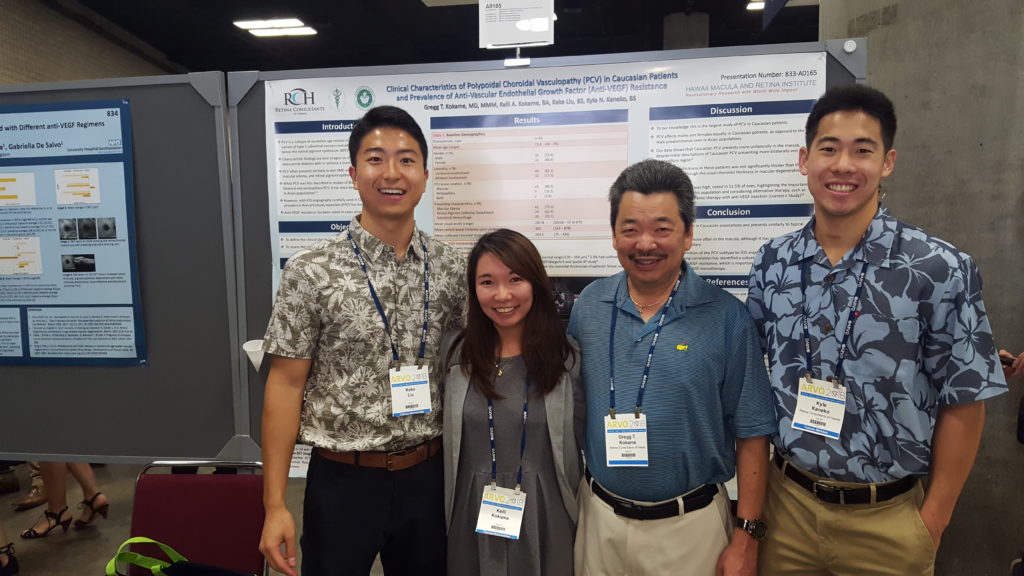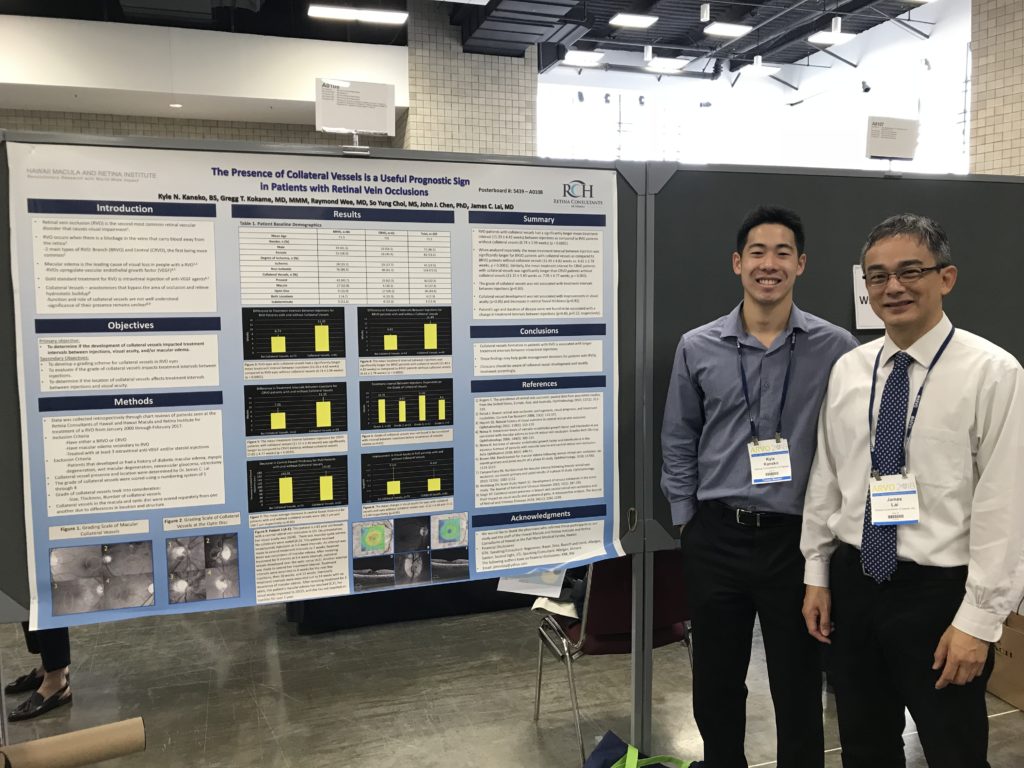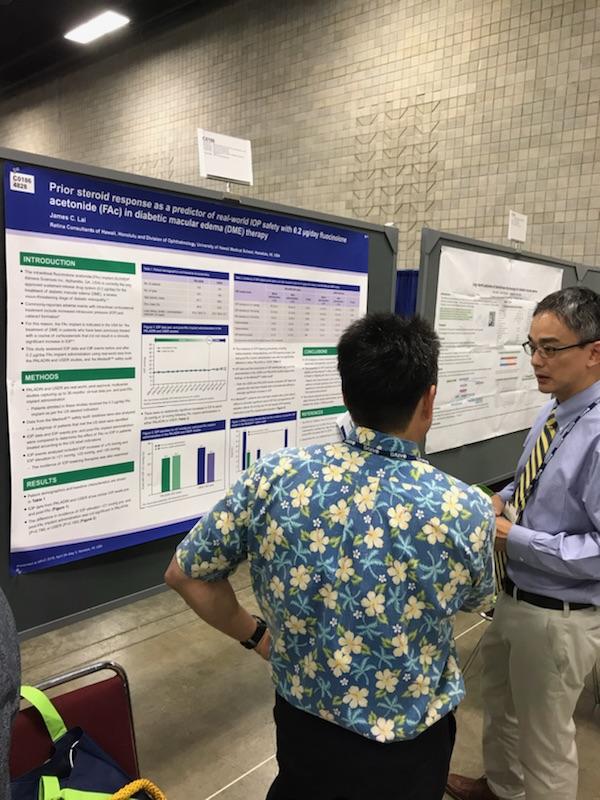The Association for Research in Vision and Ophthalmology (ARVO) is one of the largest eye and vision research organization in the world. The goal of ARVO is to advance worldwide research in the visual system and to help prevent, treat and cure its disorders.
This year, for the first time, the ARVO annual meeting was held in Honolulu, Hawaii at the Honolulu Convention Center. From April 29 through May 3, over 11,000 vision researchers and clinicians gathered to share the latest breakthroughs in vision research.
RCH participated in ARVO’s 2018 meeting with three accepted poster presentations. Poster presentations allow face to face interaction with attendees who are interested in your research. The first presentation titled “Clinical Characteristics of Polypoidal Choroidal Vasculopathy in Caucasian Patients and Prevalence of Anti-Vascular Endothelial Growth Factor Resistance” reported the high prevalence of anti-VEGF resistance seen in Caucasians that have PCV.

Dr. Kokame with med student and pre-med students and their research
The second presentation titled “The Presence of Collateral Vessels is a Useful Prognostic Sign in Patients with Retinal Vein Occlusions”, presented on the last day of ARVO, discussed the impact that collateral vessels forming secondary to retinal vein occlusions have on treatment intervals between injections. Both presentations were well received and sparked discussion with many fellow researchers at the meeting.

Research intern, Kyle Kaneko, and Dr. James Lai with their collaborative research at ARVO 2018
The third presentation, “Prior steroid response as a predictor of real-word IOP safety with 0.2mg/day of fluocinolone acetonide in diabetic macular edema therapy” was done by Dr. Lai.

Dr. Lai explaining study results to an interested individual
The ARVO meeting fosters the collaboration between clinicians and basic scientists allowing the integration and spread of new knowledge in the field of ophthalmology. The doctors of RCH will continue to not only contribute to retinal research, but to also bring back new knowledge that will improve patient care in Hawaii.
